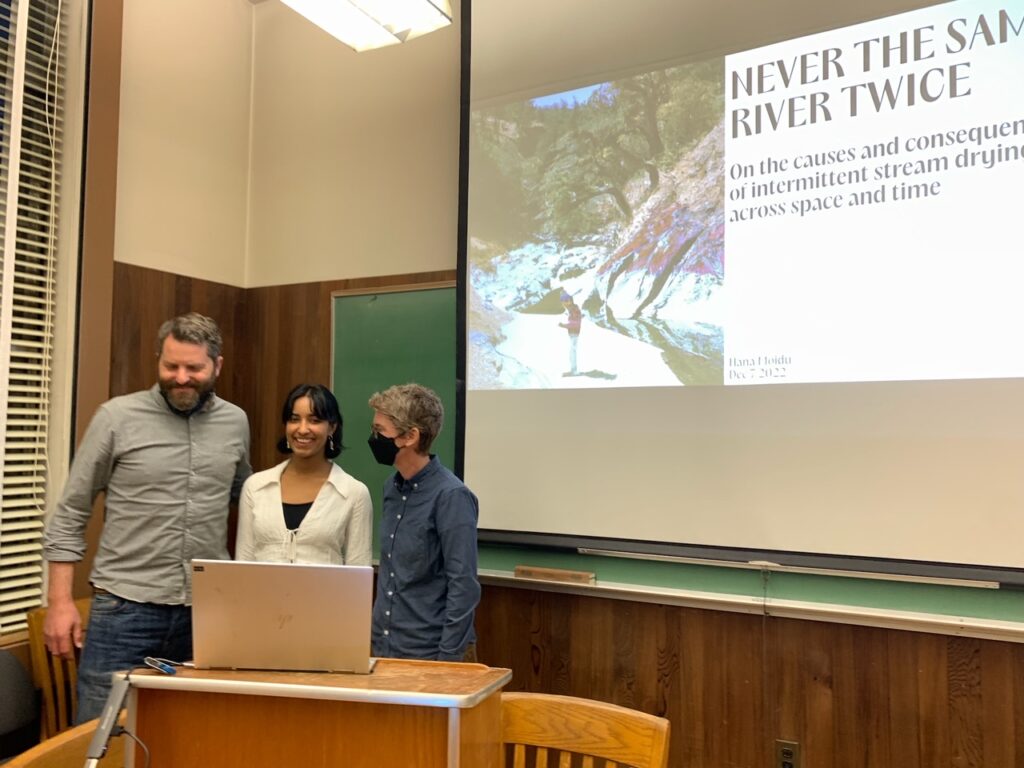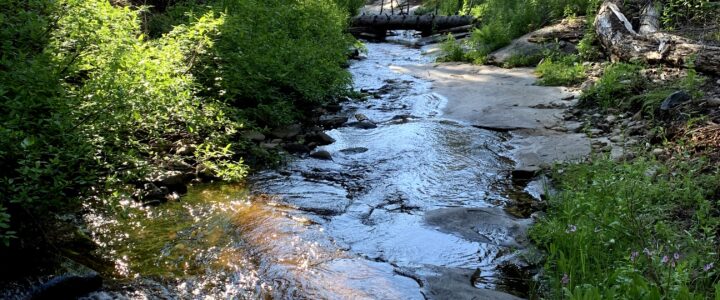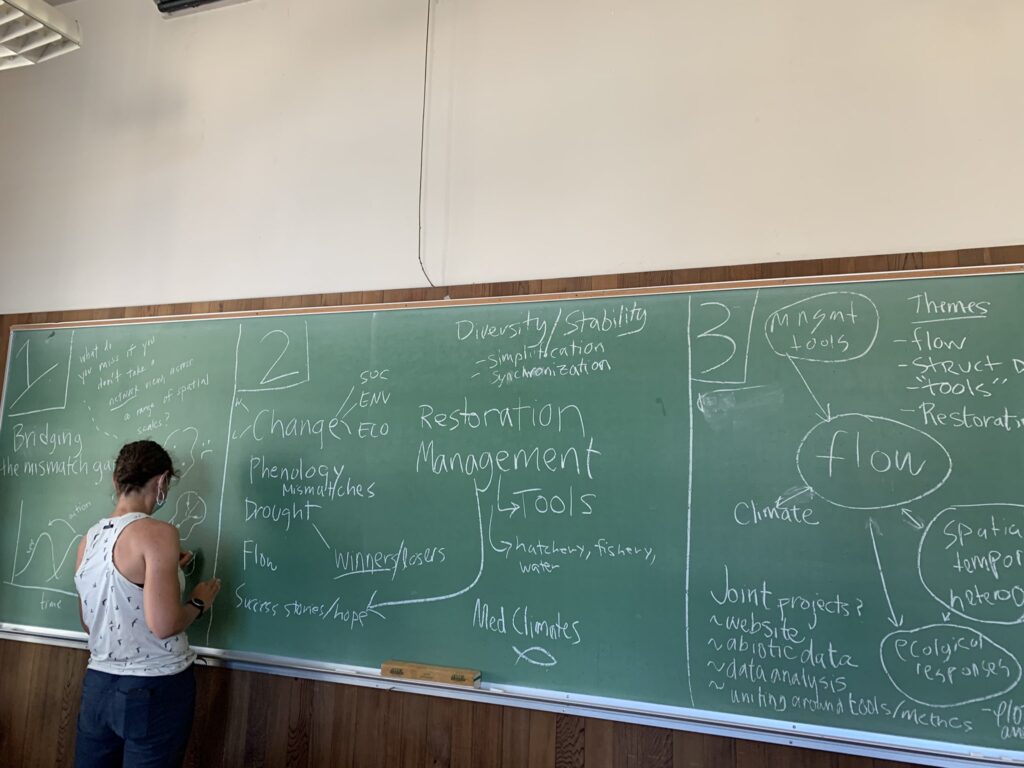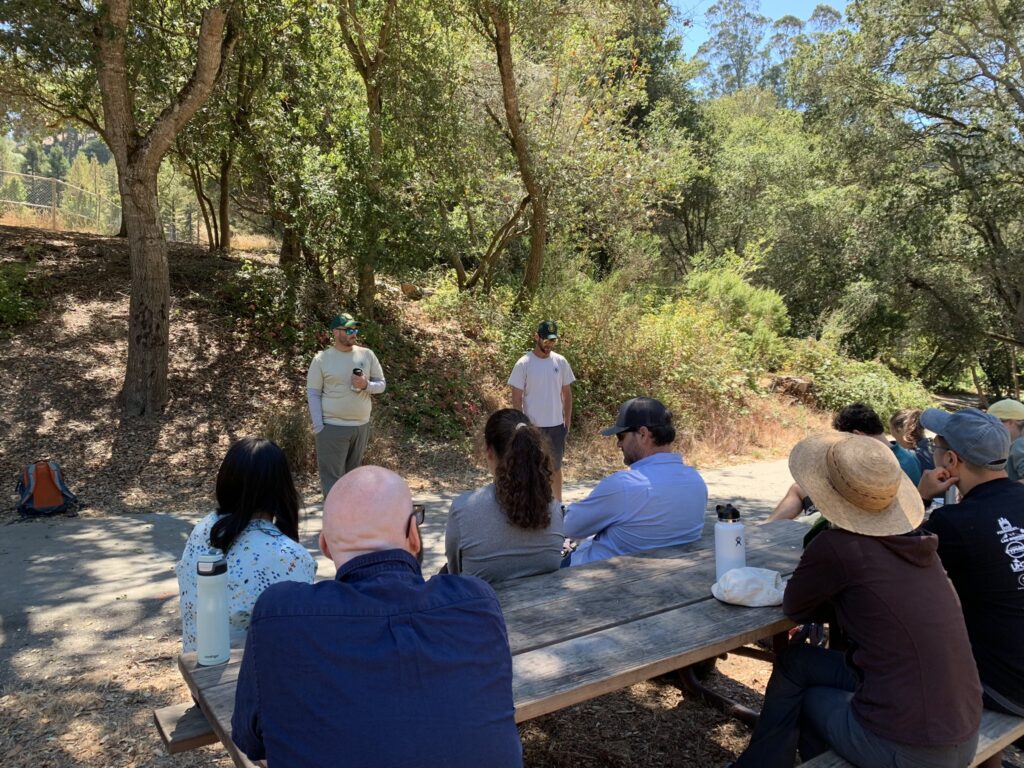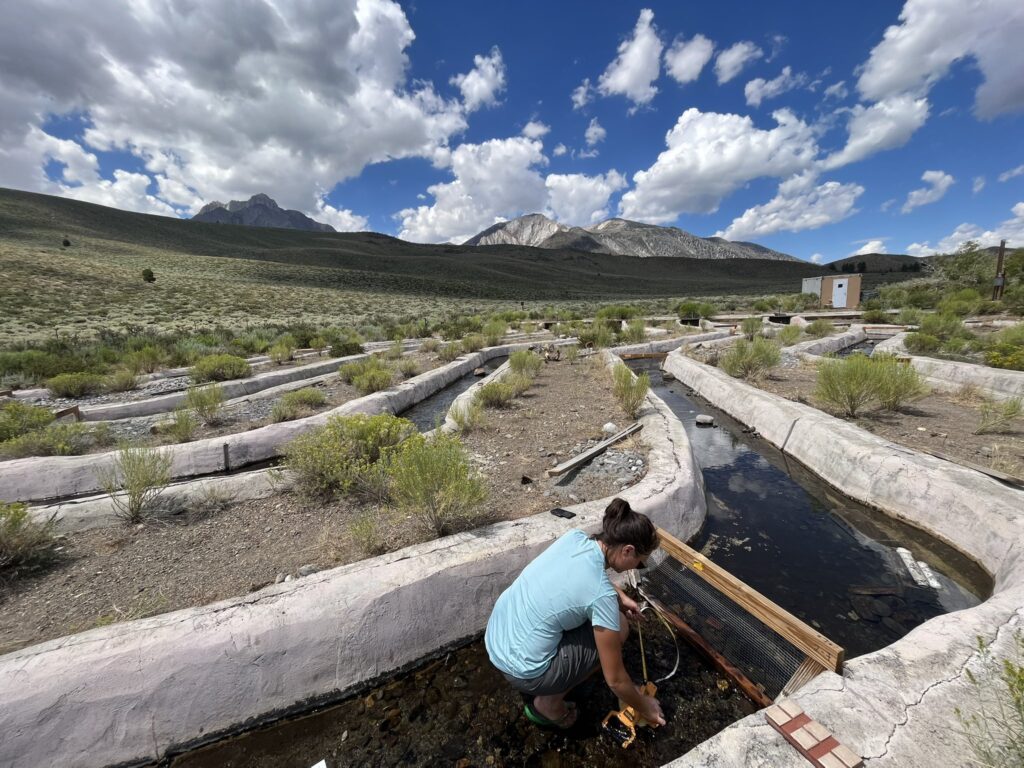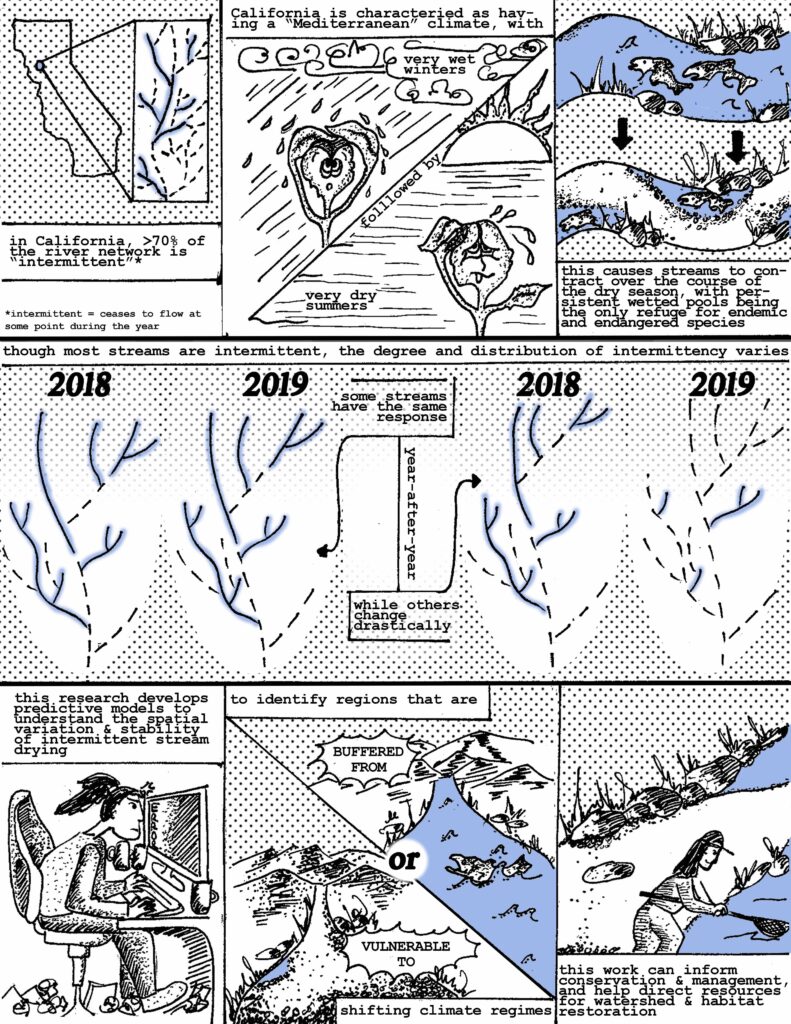A new paper from our research group, led by graduate student Brian Kastl, was recently published in Ecosphere, Migration in drought: Receding streams contract the seaward migration window of endangered salmon. The study explores how the migration of juvenile coho salmon from tributaries in the Russian River in springtime is affected by streamflow and temperature. We found that low seasonal streamflow and warm temperatures associated with drought resulted in an earlier and contracted migration of coho salmon smolts from the system. The research suggests that protecting environmental flows by limiting surface water diversions and reducing groundwater withdrawals could help expand the outmigration window for coho salmon smolts and mitigate the effects of drought in this system and in other salmon-bearing streams projected to experience more severe droughts under climate change.
The study was also covered in a story in the San Francisco Chronicle, “California drought poses more obstacles to young Russian River coho salmon.

